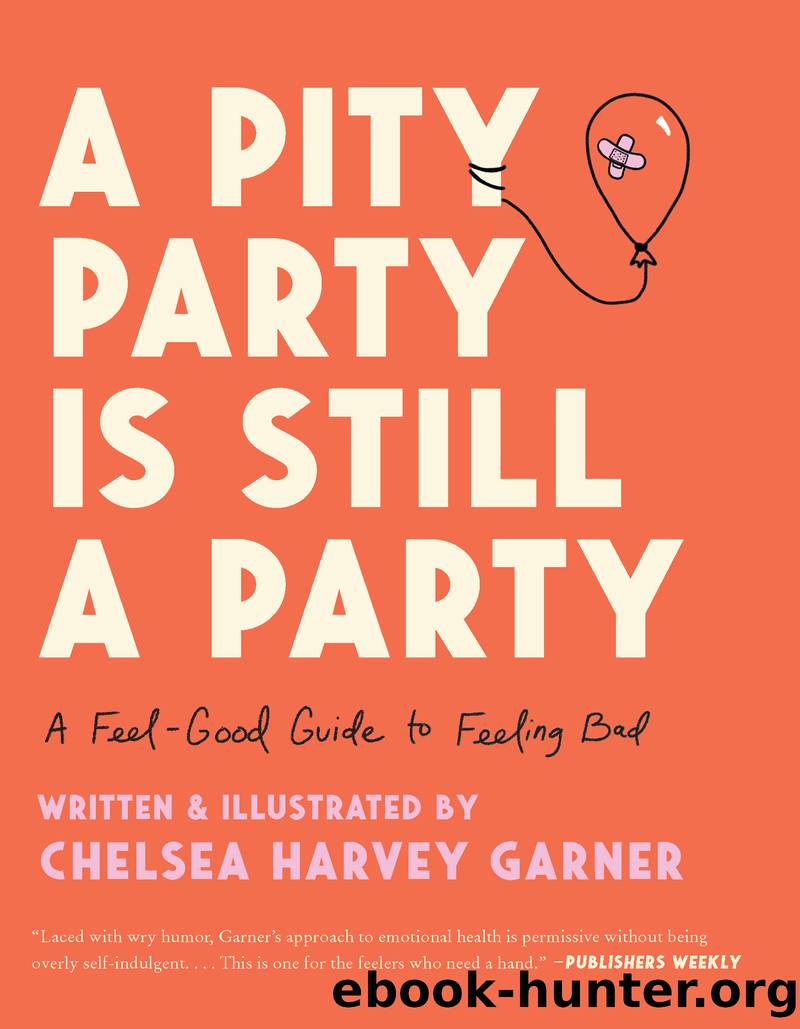A Pity Party is Still a Party by Chelsea Harvey Garner

Author:Chelsea Harvey Garner
Language: eng
Format: epub
Publisher: HarperCollins
Published: 2023-04-21T00:00:00+00:00
Trust Issues
To be trusted is a greater compliment than being loved.
âGeorge MacDonald
WHENEVER I START WORK WITH A NEW CLIENT, I TRY TO REMEMBER THAT IâM A stranger to them. They donât know anything about my history, the books Iâve read, or my ethical beliefs. They donât know that Iâm the kind of person who compulsively hangs things back up at thrift stores even when Iâm not the one who messed them up, and I donât expect them to. I understand that, to them, Iâm just a lady with a lot of tattoos and weird art on my walls. Just because I have letters after my name doesnât mean they know they can trust me. Now, therapy is obviously an exceptional circumstance. Itâs not often that a person is expected to divulge information about the most difficult aspects of their experience within minutes of meeting. But while the therapeutic process asks for more trust more quickly, all connections require trust.
Trust is always a risk, especially at first. When someone is trying to decide whether they can trust us, theyâre trying to assess whether itâs safe to be vulnerable with us. Theyâre asking themselves questions like: âWill they judge me?â âWill they take advantage of what I share?â âWill they suddenly disappear as soon as I start to depend on them?â The more quickly and effectively we can put these fears to rest, the more trust weâll earn.
Building trust is an active process. It doesnât just happen on its own. It requires participation from each person, both in the offering of information (and behavior to back it up) as well as the willingness to assume the best about the other person before we have much proof of who they are. The most common mistake people make in trying to build trust with others is assuming that good intentions are enough. Other people donât know whatâs in our hearts and minds. We have to show them. And we have to do it in a way that makes sense to them, which means we have to learn about them and their past as we go.
We all have complex histories and identities. We have pain we want to avoid experiencing again and ways we prefer to be treated. It takes time to reveal these parts of ourselves and to learn about others. The more we get to know someone, the more we can use the knowledge we gain to customize how we treat them. In every group of friends, youâll find people with a huge array of backgrounds that affect what makes them feel safe. In my friend group, I know that Gina gets overwhelmed easily, so I donât pressure her to come out if sheâs had a long week. I know that Mary gets really lonely, so I make sure to invite her to arrive early to events if I can. I know that Greg had an abusive father, so I try not to get too loud around him. Each of these considerations is the result of months if not years of active trust-building between us.
Download
This site does not store any files on its server. We only index and link to content provided by other sites. Please contact the content providers to delete copyright contents if any and email us, we'll remove relevant links or contents immediately.
Should I Stay or Should I Go? by Ramani Durvasula(7642)
Why We Sleep: Unlocking the Power of Sleep and Dreams by Matthew Walker(6689)
Fear by Osho(4724)
Flow by Mihaly Csikszentmihalyi(4679)
Rising Strong by Brene Brown(4441)
Why We Sleep by Matthew Walker(4426)
The Hacking of the American Mind by Robert H. Lustig(4361)
How to Change Your Mind by Michael Pollan(4343)
Too Much and Not the Mood by Durga Chew-Bose(4324)
Lost Connections by Johann Hari(4166)
He's Just Not That Into You by Greg Behrendt & Liz Tuccillo(3874)
Evolve Your Brain by Joe Dispenza(3657)
The Courage to Be Disliked by Ichiro Kishimi & Fumitake Koga(3475)
Crazy Is My Superpower by A.J. Mendez Brooks(3386)
In Cold Blood by Truman Capote(3373)
Resisting Happiness by Matthew Kelly(3332)
What If This Were Enough? by Heather Havrilesky(3302)
The Book of Human Emotions by Tiffany Watt Smith(3287)
Descartes' Error by Antonio Damasio(3264)
